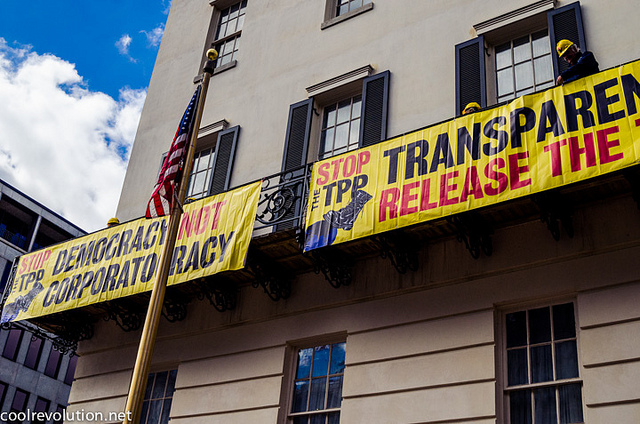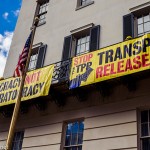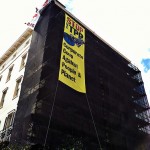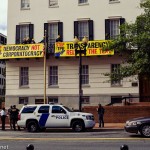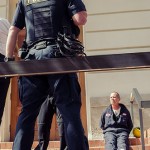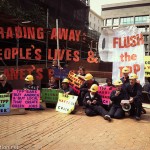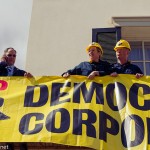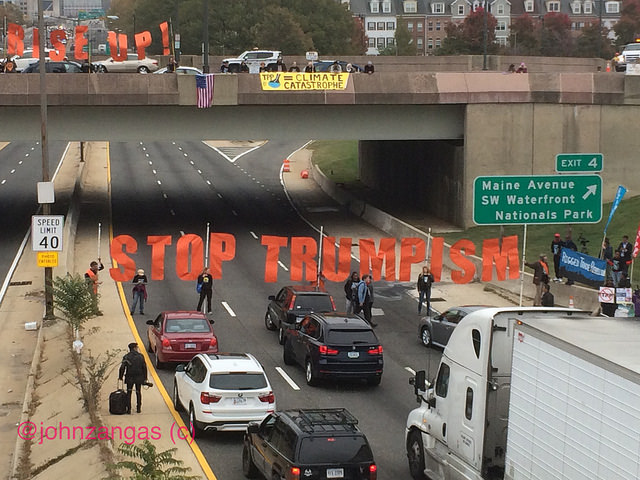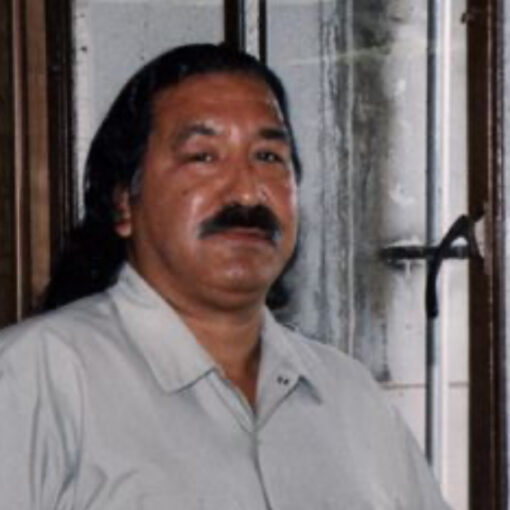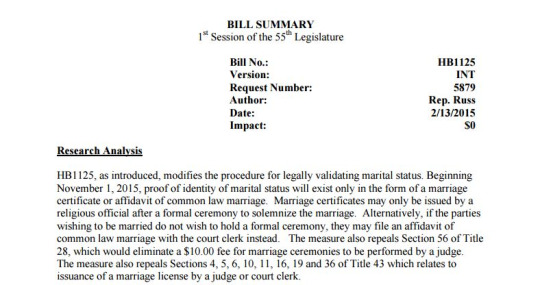They might as well have dared them to do it. In the process of being renovated, the north side of the U.S. Trade Representative’s Office is covered in scaffolding. To reach the rooftop of the four-story building, you don’t even have to pass through its doors. All you have to do is climb ladders up eight levels of the scaffolding.
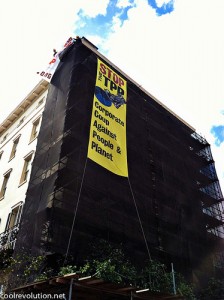 There weren’t even any workers on Tuesday morning to get in the way of seven activists dressed in blue jumpsuits and yellow hardhats. They headed up those ladders–some to the second floor balcony and others to the very top.
There weren’t even any workers on Tuesday morning to get in the way of seven activists dressed in blue jumpsuits and yellow hardhats. They headed up those ladders–some to the second floor balcony and others to the very top.
Unfurling like a roll of toilet paper (which it depicted), a banner dropped from the rooftop that said, “Flush the TPP!”
Flush the TPP! is the campaign protesting the Trans-Pacific Partnership, a trade agreement in final negotiations at the U.S. Trade Representative’s Office.
If you’ve never heard of it, there’s a good reason why: it’s classified. Blanketed by an unprecedented amount of secrecy, the TPP is the first trade agreement to be classified, even though no intelligence is involved.
“We just don’t know what’s in this treaty,” says Cassidy Regan of Flush the TPP! “And what we do know is really terrifying.”
While those in the 11 Pacific Rim countries who would be affected by the trade deal have been kept in the dark, six hundred corporations serving as advisers are in the know. That’s why the campaign portrays the TPP as a “Corporate Coup Against People and the Planet.” The public only knows what it does because portions of the text have been leaked.
Various advocacy groups have gotten involved in exposing and opposing the TPP, often calling it “NAFTA on steroids” because it would hand over so much power to corporations. Inclusion of “corporate tribunals” could circumvent domestic legal systems and decimate protections for public health, workers and the environment.
Public Citizen claims that the TPP could mean a pay cut for 90% of American workers. Regan says it could expand corporations’ ability to sue governments for lost profits.
Compounding the secrecy is the potential for ramming treaty ratification through Congress. President Obama is pushing for fast track–an up or down vote within thirty days. That vote may come in December.

